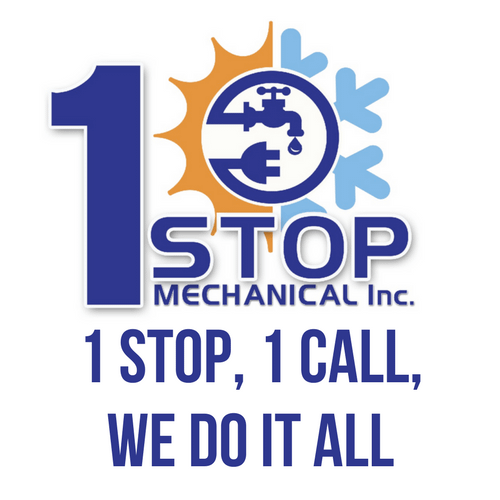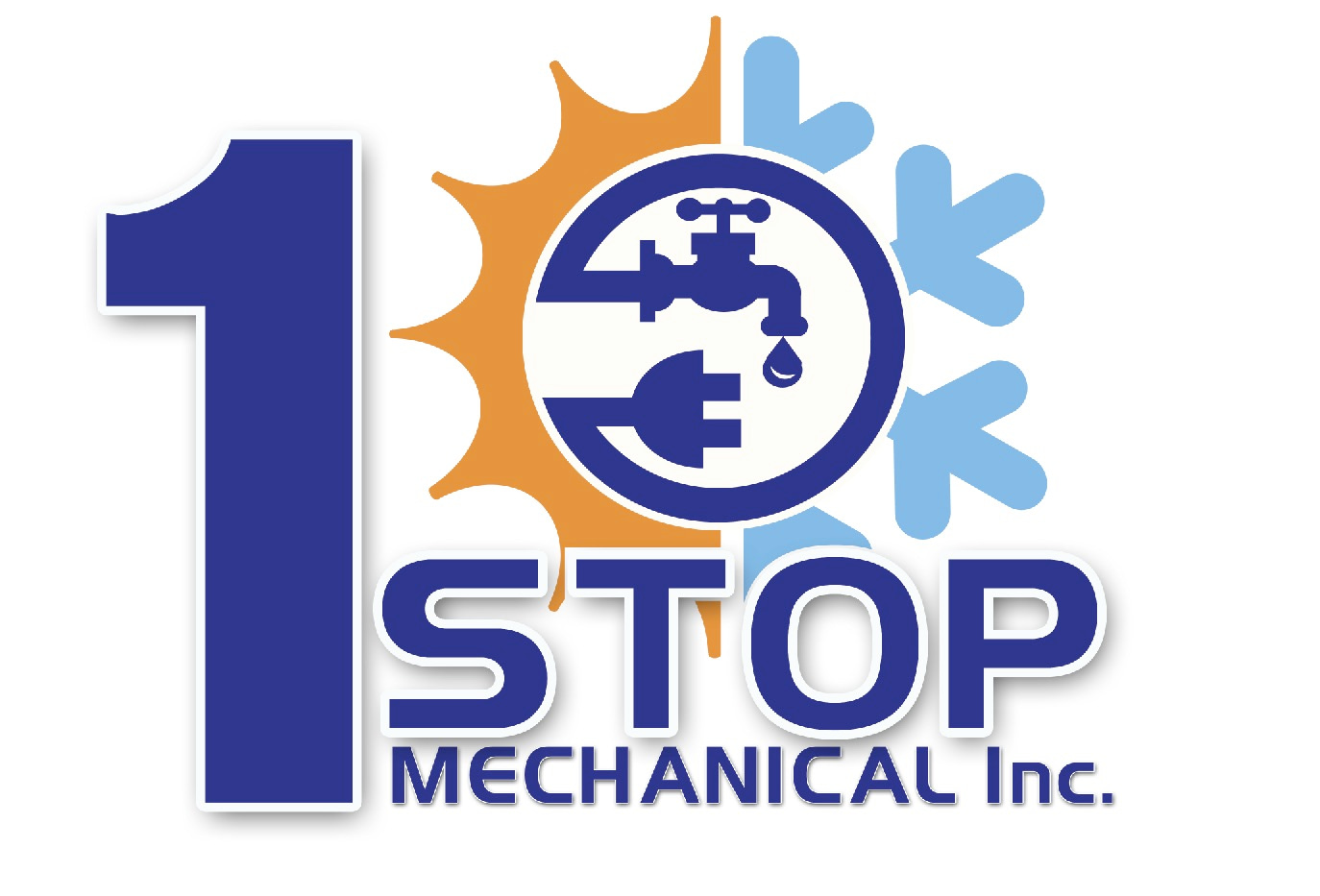Plumbing Codes and Regulations in Woodbridge, VA: What Homeowners Need to Know
When it comes to maintaining and upgrading your home’s plumbing system, understanding plumbing codes and regulations is essential. These codes are designed to ensure the safety, efficiency, and reliability of your plumbing system while protecting the health of your household. For homeowners in Woodbridge, VA, complying with local plumbing codes is not only important for safety but also for staying within the law.
At One Stop Mechanical, we take pride in being fully versed in the latest plumbing codes and regulations in Woodbridge, VA. In this blog, we’ll explain the importance of these codes, common regulations you should be aware of, and how we ensure that all our plumbing work complies with the highest standards.
Why Plumbing Codes Matter
Plumbing codes are a set of rules and guidelines that govern the design, installation, and maintenance of plumbing systems. These regulations are put in place to protect both homeowners and the public by ensuring that plumbing systems operate safely and efficiently. Here’s why compliance with plumbing codes is crucial:
- Safety: Plumbing codes prevent unsafe practices that could lead to serious issues such as gas leaks, water contamination, or flooding. By adhering to these standards, you minimize the risk of accidents or damage to your home.
- Public Health: Improper plumbing can lead to cross-contamination between potable water (drinking water) and wastewater, posing serious health risks. Plumbing codes ensure that clean water and waste are properly separated and managed.
- Efficiency: Properly installed plumbing systems work more efficiently, reducing water waste and energy consumption. This can lead to lower utility bills and a more sustainable home.
- Legal Compliance: Ignoring plumbing codes can result in legal penalties, fines, or difficulties when selling your home. Non-compliant plumbing systems may need to be corrected before a home sale can proceed.
Overview of Plumbing Codes in Woodbridge, VA
In Woodbridge, VA, plumbing codes are based on the Virginia Uniform Statewide Building Code (USBC), which incorporates the International Plumbing Code (IPC). These codes cover a broad range of plumbing-related topics, including:
- Pipe Sizing and Installation: The code specifies the correct sizing and material types for various plumbing pipes to ensure adequate water pressure and drainage.
- Backflow Prevention: To protect public health, backflow prevention devices are required in certain plumbing installations to prevent contamination of drinking water from backflow.
- Fixture Installation: The regulations dictate how and where plumbing fixtures (sinks, toilets, bathtubs, etc.) should be installed to ensure they function properly and meet health and safety standards.
- Ventilation Requirements: Plumbing codes require that drain systems be properly vented to prevent sewer gases from entering your home. Venting systems also help maintain appropriate air pressure in the drains, allowing water to flow smoothly.
- Water Heater Installation: Codes also govern the installation of water heaters, ensuring that they are properly vented, have appropriate temperature and pressure relief valves, and meet energy efficiency standards.
- Sump Pumps and Drainage Systems: For homes with basements or prone to flooding, sump pumps and drainage systems must comply with local regulations to effectively manage excess water and prevent damage.
Permits and Inspections: What Homeowners Should Know
In Woodbridge, VA, many plumbing projects require a permit from the local building authority. This includes major installations, replacements, or repairs such as water heater installations, pipe replacements, and bathroom remodels. Applying for a permit ensures that the work is inspected by a qualified professional to confirm it complies with local plumbing codes.
Here’s what you need to know about permits and inspections:
- When a Permit is Required: If you’re planning a significant plumbing project—such as installing a new bathroom, replacing old plumbing pipes, or adding a water heater—you will likely need to obtain a permit. This allows the city or county to inspect the work and ensure it meets safety and code requirements.
- The Inspection Process: After the plumbing work is completed, a certified inspector will visit your home to verify that the project complies with all relevant codes. The inspector will check for things like proper pipe installation, leak-free connections, and safe water heater operation.
- Why You Shouldn’t Skip Permits: Skipping the permitting process might save time or money in the short term, but it can lead to costly issues down the road. Unpermitted work can result in fines, force you to redo the work to code, or create obstacles when selling your home. Additionally, insurance companies may deny claims related to unpermitted work.
Common Plumbing Violations Homeowners Should Avoid
Even well-meaning homeowners can sometimes violate plumbing codes without realizing it. Here are some common plumbing code violations that we encounter and correct during home inspections:
- Improper Pipe Sizing: Using the wrong size pipes can result in low water pressure, slow drainage, and even damage to your plumbing system. Each fixture requires a specific pipe size to function correctly, which is outlined in the plumbing codes.
- Unvented Fixtures: Failing to vent plumbing fixtures, such as toilets or sinks, can lead to slow drainage and the release of sewer gases into your home. Proper venting is crucial for maintaining a healthy plumbing system.
- Incorrect Slope for Drain Pipes: Drain pipes must be installed at the correct slope to ensure proper water flow. If the slope is too shallow or too steep, it can lead to clogs and water backups.
- Missing Backflow Preventers: Backflow preventers are essential for preventing contamination of your drinking water supply. Failing to install these devices where required can be a major health hazard.
- Non-Code-Compliant Water Heater Installation: Water heaters must be installed with the proper safety features, including temperature and pressure relief valves, to prevent dangerous malfunctions. Improper installations can result in scalding or even explosions.
Why Choose One Stop Mechanical for Code-Compliant Plumbing Services
At One Stop Mechanical, we take plumbing codes and regulations seriously. Our team is fully licensed, trained, and up-to-date on the latest local and state plumbing codes in Woodbridge, VA. Whether you need a small repair or a complete system installation, we ensure that all work is completed in full compliance with the law.
Here’s how we help homeowners with code-compliant plumbing:
- Expertise and Experience: With years of experience in the industry, our plumbers know how to navigate the complexities of local plumbing codes. We’ll assess your plumbing system and make sure everything meets or exceeds safety and performance standards.
- Permits and Inspections Handled for You: Don’t stress about the paperwork! We’ll handle the permit application process and coordinate any necessary inspections, so you don’t have to worry about a thing.
- High-Quality Work: We pride ourselves on delivering quality workmanship that not only complies with local codes but also stands the test of time. Our goal is to ensure that your plumbing system runs safely and efficiently for years to come.
Stay Compliant with Woodbridge Plumbing Codes: Call One Stop Mechanical
When it comes to your home’s plumbing, cutting corners can lead to expensive and dangerous problems down the road. Whether you’re renovating, installing new fixtures, or upgrading your plumbing system, it’s essential to follow local codes and regulations to protect your home and your family.
At One Stop Mechanical, we’re here to help homeowners in Woodbridge, VA, navigate the complexities of plumbing codes and ensure that every project is completed safely and professionally. Contact us today for expert plumbing services that meet all local requirements, giving you peace of mind that your home is safe and up to code.

